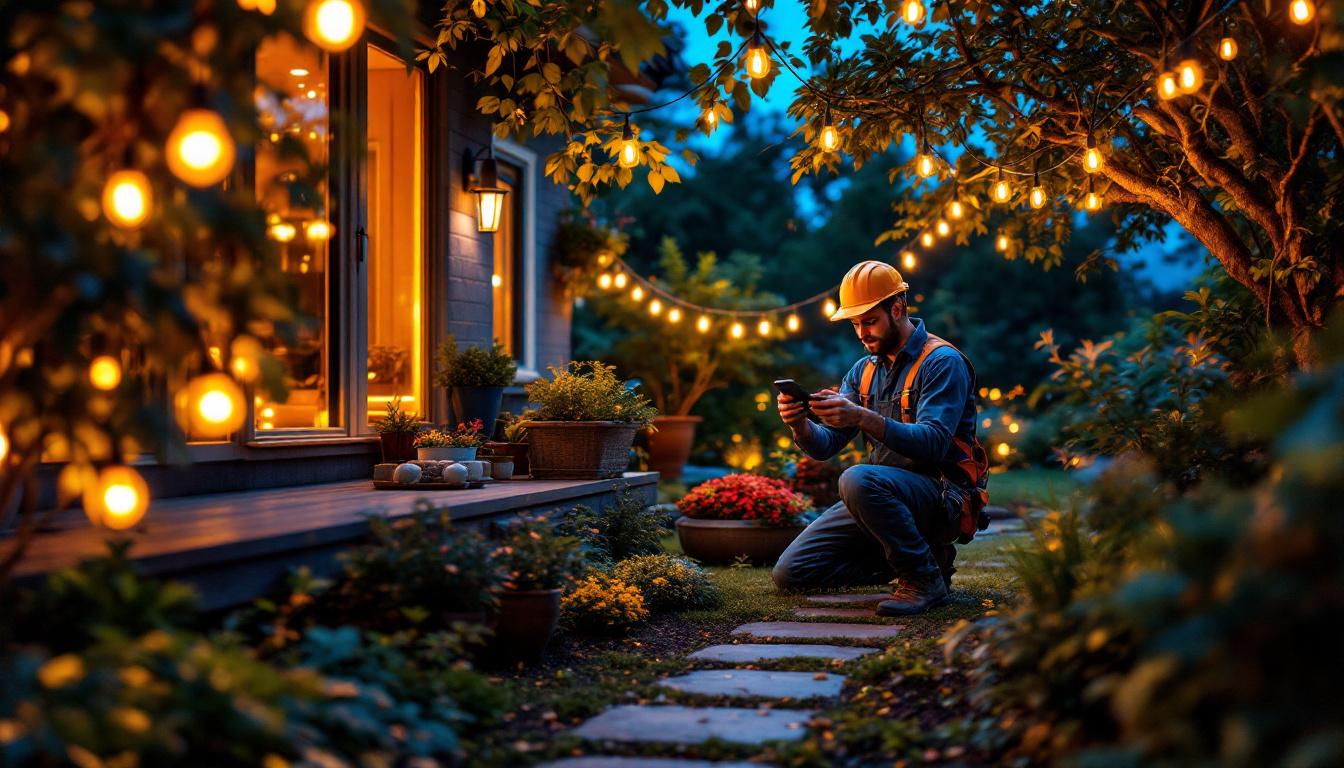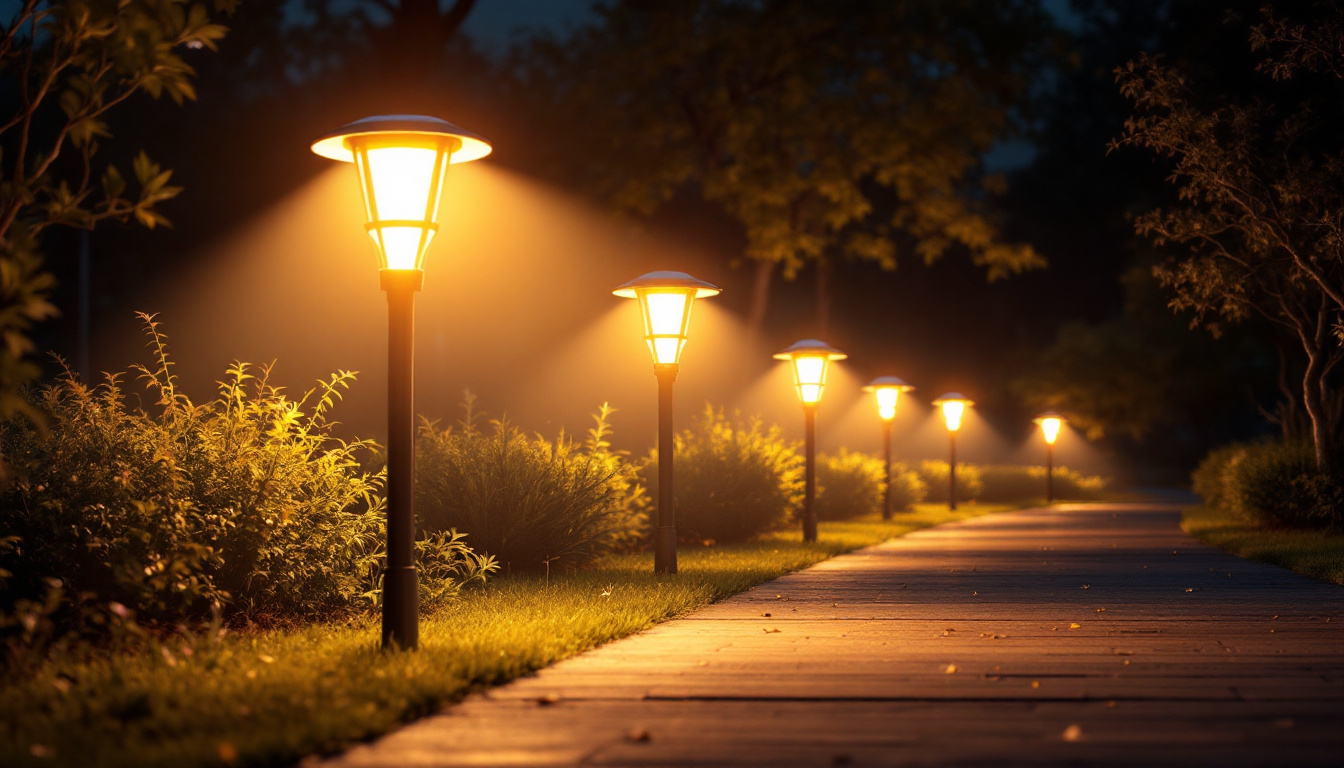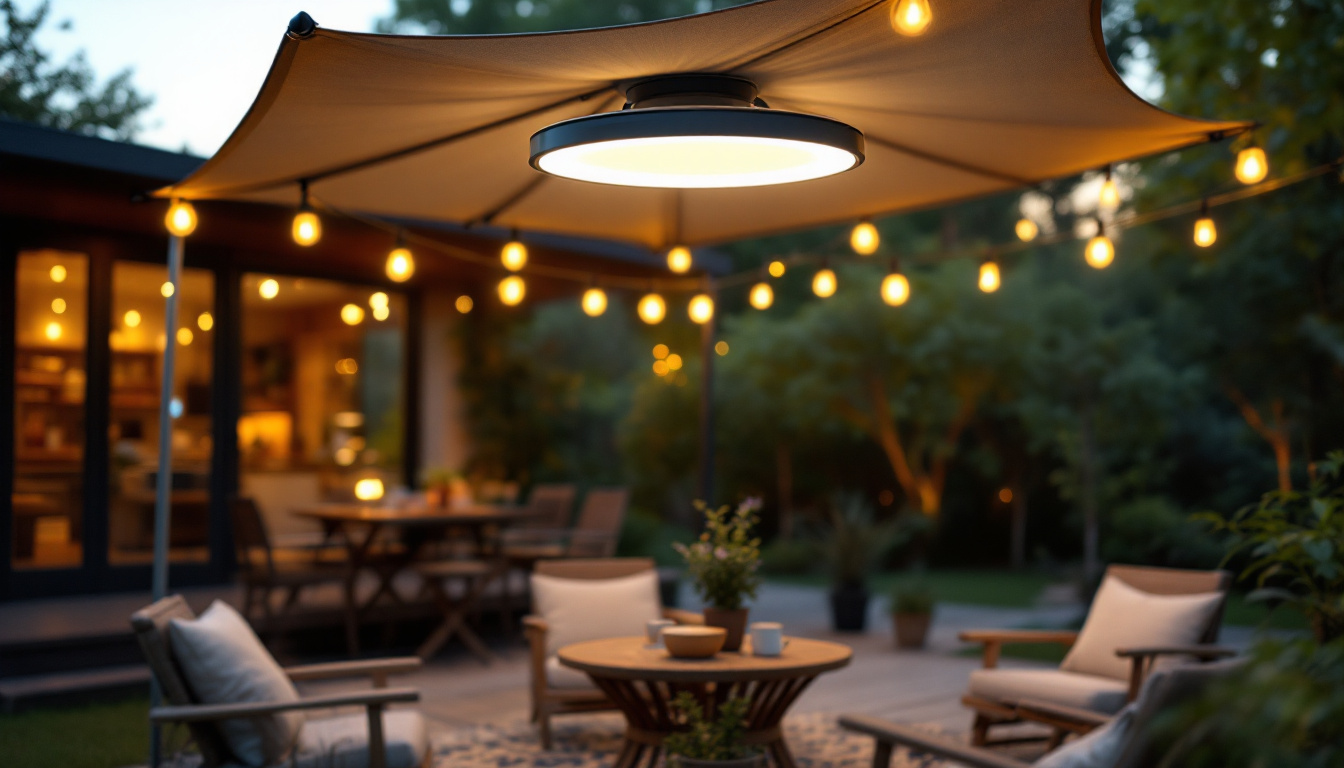
In recent years, the demand for energy-efficient and sustainable lighting solutions has surged. Among these, LED solar garden lights have emerged as a popular choice for both residential and commercial applications. For lighting contractors, understanding the intricacies of these products is essential for providing clients with the best options available. This article delves into the key aspects of LED solar garden lights, offering insights that every lighting contractor should consider.
LED solar garden lights are outdoor lighting fixtures that utilize light-emitting diodes (LEDs) powered by solar energy. These lights typically consist of a solar panel, rechargeable battery, LED bulbs, and a light fixture. The solar panel absorbs sunlight during the day, converting it into electricity that charges the battery. When night falls, the stored energy powers the LED bulbs, illuminating gardens, pathways, and outdoor spaces.
The combination of LED technology and solar power offers several advantages, including reduced energy costs and minimal environmental impact. As a contractor, being knowledgeable about these features can help in advising clients on the best lighting solutions for their needs. Furthermore, the versatility of LED solar lights allows them to be used in various settings, from residential gardens to commercial landscapes, enhancing the aesthetic appeal and safety of outdoor areas.
One of the primary benefits of LED solar garden lights is their energy efficiency. LEDs consume significantly less power than traditional incandescent bulbs, allowing for longer operational times on a single charge. Additionally, solar lights do not require wiring, simplifying installation and reducing labor costs. This ease of installation is particularly beneficial for DIY enthusiasts who wish to enhance their outdoor spaces without the need for professional assistance.
Another advantage is their eco-friendliness. By harnessing solar energy, these lights contribute to reducing carbon footprints, aligning with the growing trend towards sustainable living. Clients are increasingly seeking environmentally responsible options, making it crucial for contractors to offer solutions that meet these expectations. Moreover, the longevity of LED bulbs, which can last up to 25 times longer than traditional bulbs, means less frequent replacements, further contributing to sustainability efforts and cost savings over time.
When selecting LED solar garden lights, several features should be taken into account. Brightness is a critical factor; measured in lumens, it determines how well the light will illuminate an area. Contractors should recommend lights with adequate lumens for the intended application, whether for ambiance or security. Additionally, the color rendering index (CRI) of the LEDs can influence how colors appear at night, which is especially important for gardens filled with vibrant flowers and plants.
Durability is another important consideration. Look for fixtures made from weather-resistant materials that can withstand various environmental conditions. Furthermore, features such as adjustable brightness settings, motion sensors, and color temperature options can enhance the functionality and appeal of the lights. These added features not only improve user experience but also provide opportunities for energy savings, as motion sensors can ensure lights are only activated when needed. Additionally, some advanced models offer smart technology integration, allowing users to control their lighting remotely via smartphone apps, adding a layer of convenience and modernity to outdoor lighting solutions.
Before installation, a thorough site assessment is essential. Evaluate the area to determine the optimal placement of solar lights. Factors such as sunlight exposure, landscape features, and the intended use of the space should be considered. Ideally, lights should be positioned where they can receive direct sunlight for the majority of the day to maximize charging efficiency.
Contractors should also consider the aesthetic aspects of installation. The placement of lights should enhance the visual appeal of the garden or outdoor space while providing adequate illumination. This balance is key to achieving a successful lighting design.
Installing LED solar garden lights is generally straightforward, but attention to detail is crucial. Ensure that the solar panel is unobstructed and facing the sun to optimize charging. If the lights come with stakes, make sure they are securely anchored in the ground to prevent tipping or damage.
For lights that require mounting, use appropriate hardware and follow the manufacturer’s guidelines for installation. It is also advisable to test the lights after installation to confirm they are functioning correctly and providing the desired illumination.
While LED solar garden lights require minimal maintenance, periodic checks can ensure longevity and optimal performance. Contractors should advise clients to clean the solar panels regularly to remove dirt and debris that can hinder charging efficiency. Additionally, checking the battery condition and replacing it when necessary can extend the lifespan of the lights.
In case of malfunction, troubleshooting is often straightforward. Common issues may include inadequate charging due to shading or dirty panels, or dim lighting caused by a failing battery. Providing clients with basic troubleshooting tips can enhance customer satisfaction and reinforce the contractor’s expertise.
The market for solar lighting solutions is expanding rapidly, driven by increasing consumer awareness of environmental issues and the desire for energy-efficient products. As a lighting contractor, staying abreast of these trends can help in positioning your services effectively. Offering a range of solar garden lights can attract environmentally conscious clients looking for sustainable options.
Moreover, advancements in solar technology are leading to improved performance and affordability. As manufacturers innovate, the quality and efficiency of solar garden lights continue to rise, making them more appealing to a broader audience.
Consumers are increasingly seeking customizable lighting solutions that cater to their specific needs. This trend includes options for adjustable brightness, color-changing capabilities, and integration with smart home systems. Contractors should be prepared to offer products that incorporate these features, as they can significantly enhance the appeal of solar garden lights.
Smart technology integration allows users to control their lighting remotely, providing convenience and flexibility. As the market evolves, being knowledgeable about these features will position contractors as leaders in the field.
With the growing popularity of LED solar garden lights, competition among suppliers is intensifying. Contractors must be strategic in pricing their services and products. Offering competitive pricing while maintaining quality can attract more clients and foster long-term relationships.
Additionally, providing transparent pricing structures and highlighting the long-term cost savings associated with solar lighting can help clients see the value in their investment. Educating clients about the benefits of solar garden lights can also justify the price point and encourage sales.
Before proceeding with installations, contractors should familiarize themselves with local regulations regarding solar lighting. Some municipalities may have specific guidelines or restrictions on the use of solar lights, particularly in public spaces. Understanding these regulations can prevent potential legal issues and ensure compliance.
Furthermore, contractors should stay informed about any incentives or rebates available for solar installations. Many regions offer financial incentives to encourage the adoption of renewable energy solutions, which can be beneficial for both contractors and clients.
Safety is paramount in any lighting installation. Contractors must ensure that the products they offer meet relevant safety standards and certifications. This includes checking for compliance with electrical codes and ensuring that the materials used are safe for outdoor use.
Providing clients with information about safety certifications can enhance their confidence in the products being installed. It also demonstrates a commitment to quality and professionalism, which can set a contractor apart from competitors.
The future of LED solar garden lights looks promising, with ongoing advancements in technology. Innovations in battery technology, solar panel efficiency, and LED performance are expected to enhance the capabilities of solar lighting solutions. As these technologies evolve, contractors should keep abreast of new developments to offer the best products to their clients.
Additionally, the integration of artificial intelligence and smart technologies into solar lighting systems is likely to become more prevalent. This could lead to more sophisticated lighting solutions that adapt to user preferences and environmental conditions.
As the benefits of solar lighting become more widely recognized, the applications for LED solar garden lights are expanding beyond traditional uses. They are increasingly being utilized in commercial settings, parks, and public spaces, providing opportunities for contractors to tap into new markets.
Understanding the versatility of solar garden lights can help contractors identify potential projects and clients. Offering tailored solutions for various applications can enhance business growth and establish a reputation as a versatile lighting contractor.
LED solar garden lights represent a significant opportunity for lighting contractors looking to provide sustainable and energy-efficient solutions. By understanding the technology, installation best practices, market trends, and regulatory considerations, contractors can position themselves as knowledgeable experts in the field.
As the demand for solar lighting continues to grow, staying informed about advancements and consumer preferences will be crucial. By offering high-quality products and exceptional service, contractors can build lasting relationships with clients and contribute to a more sustainable future.
Incorporating LED solar garden lights into a contractor’s service offerings not only meets the needs of environmentally conscious consumers but also aligns with the broader trend towards renewable energy solutions. Embracing this shift can lead to increased business opportunities and a positive impact on the environment.
Ready to elevate your lighting projects with the most sustainable and energy-efficient LED solar garden lights on the market? Look no further than LumenWholesale, where we provide contractors with the highest quality, spec-grade lighting products at unbeatable wholesale prices. Say goodbye to local distributor markups and hello to superior lighting solutions that meet the highest industry standards. With LumenWholesale, bulk buying is a breeze, thanks to our hassle-free process and free shipping. Don’t compromise on quality or value; click to explore our extensive selection and discover how you can achieve the perfect blend of quality, affordability, and convenience for all your lighting needs. Wholesale Lighting at the Best Value.

Discover how outdoor wire lights are revolutionizing the lighting industry, offering contractors innovative solutions for efficiency, creativity, and sustainability.

Discover the essentials of bright solar-powered outdoor lights in just five minutes.

Explore the top portable awning ceiling lights and their alternatives in this comprehensive guide.

Discover how solar security lights can revolutionize outdoor lighting projects by enhancing efficiency and sustainability.